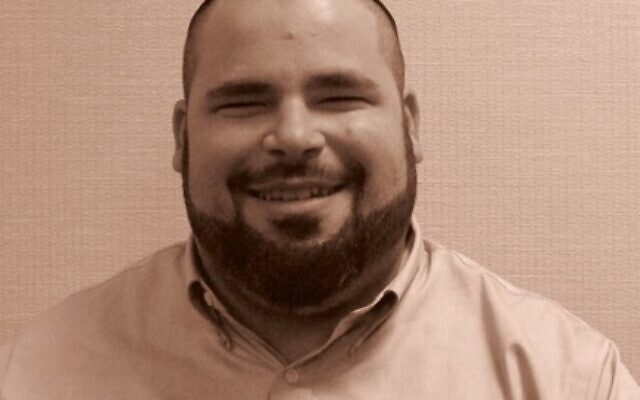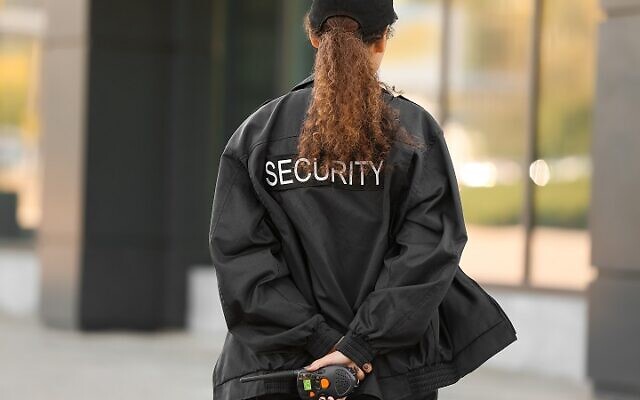Addressing High Holy Days Safety Concerns
Post-Colleyville, many synagogue congregants have joined training on situation awareness and responding to active threats.
Dave Schechter is a veteran journalist whose career includes writing and producing reports from Israel and elsewhere in the Middle East.
As the Jewish community prepares for the year 5783, sermons are being edited, menus for gatherings of family and friends are being planned and security procedures are being reviewed and implemented at synagogues throughout the Atlanta area.
For many of Atlanta’s approximately 40 congregations, in-person attendance at Rosh Hashanah and Yom Kippur services will be the highest since 2019, when the High Holy Days fell three months before the COVID-19 novel coronavirus was identified in the United States.
That means more people walking to synagogue, more people driving to synagogue, more people in the pews (even as many congregations provide services online, as well) and a heightened attention to security inside and outside the buildings.

“Specific to Atlanta, there’s no elevated threat level other than what we’re seeing nationwide,” Neil Rabinowitz, community security director for the Jewish Federation of Greater Atlanta (JFGA), told the AJT.
The January 2022 hostage-taking inside a synagogue in Colleyville, Texas, drove home the need for congregations to hone their existing security protocols and hardware. In Atlanta, that included enhanced security training not only for congregation staffs, but also for lay leaders and congregants.
Rabinowitz said that he and Bryan Underwood, the deputy security director, have conducted security assessments at all of Atlanta’s synagogues. In addition, significant numbers of Jewish Atlantans have taken advantage of in-person and online training in “situational awareness” and “countering active threats.”
Rabinowitz estimated that two-thirds of Atlanta’s congregations have participated in such training. Of those that have not, none are averse to such training, but have yet to schedule a session, he said. The final online program is planned for Sept. 13. Anyone interested in the program should consult the security page on the JFGA website.

Heading into the High Holy Days, Rabinowitz’s greatest concern is “making sure that everybody in the entire community has the necessary situational awareness, of everything going on around them and that they don’t hesitate” to notify law enforcement or synagogue staff if they see something that appears out of the ordinary.
Rabinowitz estimated that three-quarters of Atlanta’s congregations now hire off-duty police, who provide a visible deterrent, whether stationed outside or inside a synagogue building.
Geographically, the concentration of synagogues along Lavista Road in the Toco Hills neighborhood creates unique security concerns. In addition to regular vehicle traffic along that usually busy stretch of road, pedestrian traffic increases and side streets are filled with parked vehicles. Rabinowitz praised the Toco Hills congregations for the cooperation between their synagogue security committees and the north-central precinct of the DeKalb County Police Department.
“We have a spectacular security committee in place that is in constant contact with the Federation security people, and law enforcement, and we’re very comfortable with whatever steps they decide to take. We have volunteers who will be ushers and also keeping an eye on security matters. We’re pretty comfortable with the way things are, and we’re very happy with our partnership with local law enforcement,” said Rabbi Yitzchok Tendler, executive director of Congregation Beth Jacob, which is located in the Toco Hills neighborhood.
As much as we’d like to say, ‘leave the doors wide open, and everyone can come in, no tickets required,’ we’re unfortunately living in a time where that’s not realistic.
Rabinowitz also lauded the security cooperation the Jewish community has received from police and sheriff’s departments throughout metro Atlanta. “There’s a great awareness on the part of law enforcement,” he said. “They stress often, ‘We want to help. We’re here to help.’”
Rabbi Daniel Dorsch, senior rabbi of Congregation Etz Chaim in Marietta, said, “We have a very dedicated team of lay people in the congregation who have been working on addressing security matters. Not just newly, but for years, decades at this point. So we are a pretty well-oiled machine when it comes to addressing security. We also have a wonderful relationship with the Cobb County sheriff’s office. Many of the sheriffs serve as our security.”
Rabinowitz also cited the visibility of information about when and where congregations hold services as a security issue. A “members-only” link on a website, along with posting a welcome that invites non-members to call the synagogue for information, is preferable to information easily accessible outside of the Jewish community, he said.
“I think with antisemitism, we, as a synagogue, go back 30-plus years of having a security officer, courtesy of some graffiti we had 30 some-odd years ago. Security concerns are always looked at and taken seriously. For example, one thing we do is have an open-door policy, but at the same time, we require for security purposes that everybody have a ticket ahead of time for the High Holidays.

“So that’s one thing we do from a security standpoint, that everyone who comes in we know who they are, we’ve got the information on them. As much as we’d like to say, ‘leave the doors wide open, and everyone can come in, no tickets required,’ we’re unfortunately living in a time where that’s not realistic,” said Adam Kofinas, executive director of Congregation Or VeShalom.
Security, particularly cameras and communications systems, can be expensive. In recent years, numerous Atlanta congregations have taken advantage of federal funds authorized by Congress for the Non-Profit Security Grant Program. In fiscal year 2022, $250.15 million has been made available nationwide. Rabinowitz and Underwood assist congregations in making grant applications, which are handled by the Georgia Emergency Management Agency.
The Federation’s community security program is a joint effort with the Secure Community Network, a nationwide Jewish security group established by the Jewish Federations of North America and headquartered in Chicago. Rabinowitz, a 22-year veteran of the Federal Bureau of Investigation, took up the Atlanta post in May 2020. Underwood, who came to the JFGA in July, spent 25 years with the Bureau, including as assistant special agent in charge of the Louisville, Ky., field office.
While paid by the JFGA, they technically are employees of SCN.
As for his High Holy Days plan, Rabinowitz said that he will be in his office, monitoring the security situation across Jewish Atlanta.
- Synagogue Guide
- Local
- Dave Schechter
- 5783
- High Holidays
- rosh hashanah
- Yom Kippur
- COVID-19
- Security
- Neil Rabinowitz
- jewish federation of greater atlanta
- Colleyville
- Texas
- Bryan Underwood
- toco hills
- DeKalb County Police Department.
- Rabbi Yitzchok Tendler
- Congregation Beth Jacob
- Rabbi Daniel Dorsch
- congregation etz chaim
- Adam Kofinas
- Congregation Or VeShalom
- Non-Profit Security Grant Program
- Secure Community Network
- Jewish Federations of North America




comments